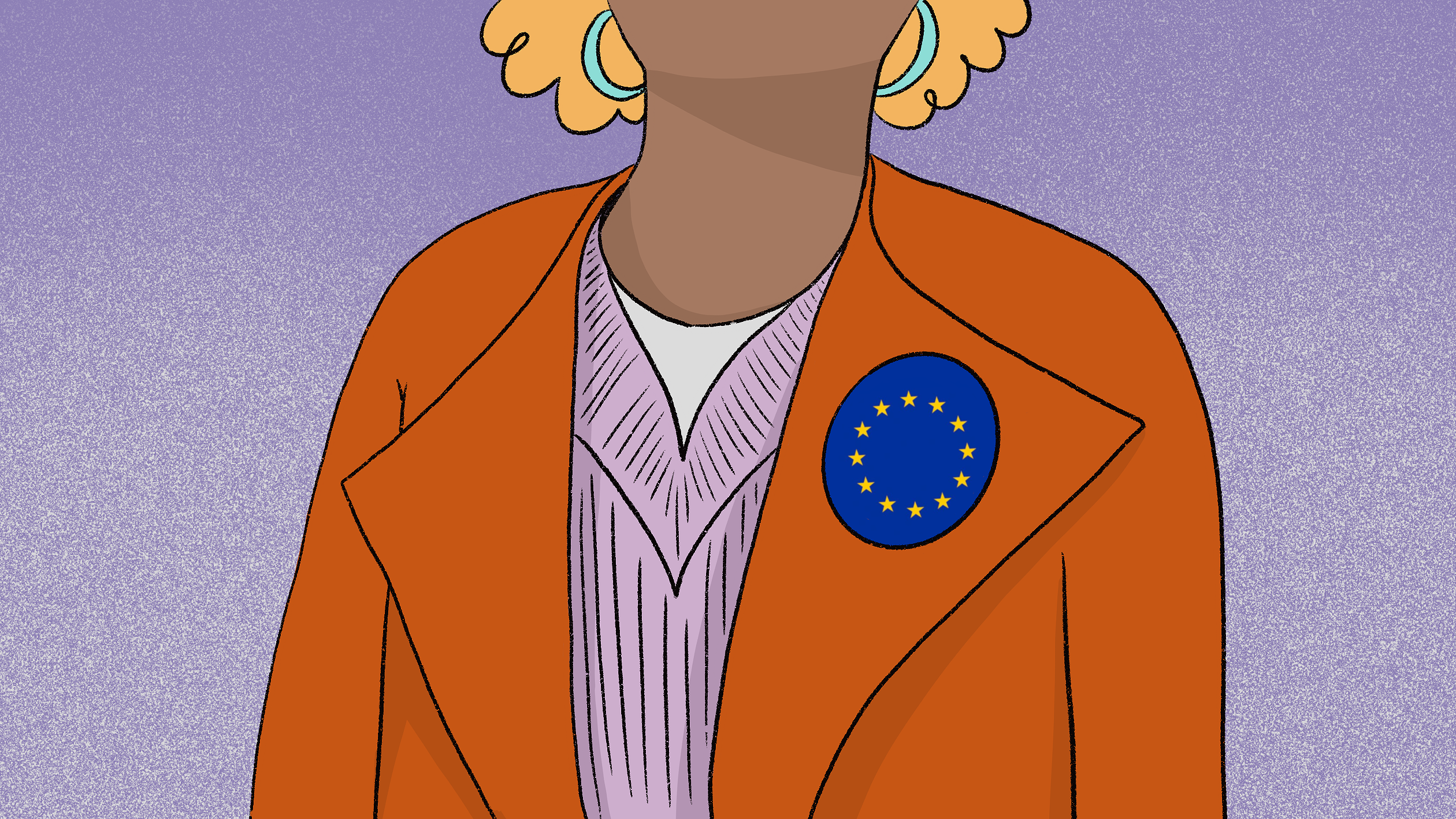
Illustration by Daniela Nunes
Renewal of education for peace and why it is important?!
The Council of Europe’s efforts in fostering peace education
by Nevena Radosavljević
Frequently, when we talk about peace education, for those who have never encountered it, it might sound strange. Or at least something that is “hippie”, alternative and not defined. On the other hand, it can also be considered as idealistic or hardly achievable. This also comes from my personal experience, as it is often not clear how one can study peace or how one can work as a peace educator. In the following paragraphs, we will try not only to understand these dilemmas but also to explore the role of the Council of Europe in peace education.
Peace education in general is a practice that is relatively new. Peace studies as such appeared on the European continent at the end of the 1950s and started to take shape with the research of Professor Johan Galtung, especially with his book Peace by Peaceful Means (Galtung, 1996).[
As provided by the definition in Compass, peace education is perceived as a process that is based on human rights education which emphasises the importance of human dignity and equality for all, and can help people understand peace in a broader sense. It is not just about stopping direct violence, but also about repairing relationships and creating social, economic and political systems that are more likely to promote long-term peace. Moreover, the Council of Europe Charter on Education for Democratic Citizenship and Human Rights Education (EDC/HRE Charter) creates further links between human rights and peace education. In order to cultivate democratic citizenship and promote human rights education, it is imperative to prioritise the fostering of social cohesion and intercultural dialogue, as well as the recognition and appreciation of diversity and equality, including gender equality. According to the EDC/HRE Charter, achieving these goals requires the development of competences and awareness that aim to diminish conflict, increase the understanding of differences between various faiths and ethnic groups, foster mutual respect for human dignity and shared values, encourage dialogue and ultimately promote peaceful resolutions to conflicts and disputes.
In the present climate, when open-armed conflicts, violence escalation and violations of human rights are something that we hear about or encounter almost every day, talking and acting for peace and peace education is of great importance. It is crucial to develop an understanding of peace education, why it is important to offer it in different educational settings, including formal and non-formal education. Even though there are attempts to foster peace and human rights education, still the trend of investing in weapons and armament has only been increasing and in the past few years has reached the highest amounts ever (Stockholm International Peace Research Institute 2022). In order to change this and foster more peaceful societies and relations, there is a big need to refocus and “defund military industry and refund peace education”, as one of the professors said during the Consultative meeting renewing peace education in intercultural youth activities organised by the Youth Department in January 2023. It is crucial to emphasise, prioritise and ensure the accessibility of peace and human rights education.
 Consultative meeting renewing peace education in intercultural youth activities – What was that about?
Consultative meeting renewing peace education in intercultural youth activities – What was that about?
The European Youth Centre in Strasbourg was buzzing with excitement on 24-25 January 2023, as youth activists, peace educators, researchers, professors and human rights advocates gathered at a consultative meeting on education for peace and conflict transformation. The meeting was organised by the Council of Europe Youth Department and brought together 35 experts in peace education, peacebuilding and conflict transformation to review and renew key contents and approaches to peace education in the intercultural youth activities of the Council of Europe.
The participants, from a variety of backgrounds and organisations, discussed the importance of peace education at the local and national levels and identified educational challenges, including those related to sustainability and personal learning impact in communities and societies. The meeting aimed to review approaches and practices of youth activities for peacebuilding and conflict transformation in the Council of Europe and make proposals for the renewal of the place of peace education and conflict transformation in the Youth for Democracy programme.
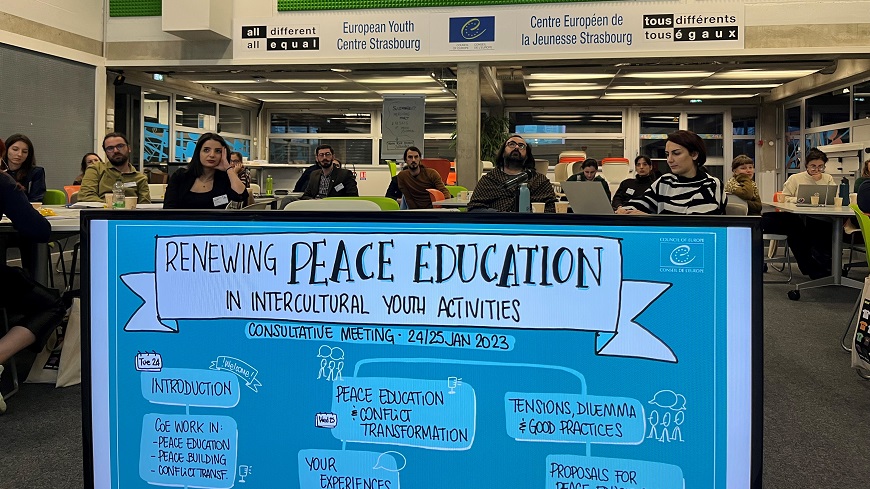
During the meeting, participants reflected on the role of peace education in Europe today and mapped out the challenges and difficulties in running effective peacebuilding activities, especially in times of open-armed conflicts. This group of 35 people shared examples of good practices and created proposals for enhancing and mainstreaming peace education and conflict transformation in the Council of Europe’s Youth for Democracy programme, including activities supported by the European Youth Foundation (EYF).
Considering the emphasis on advancing peace education as a prominent theme during discussions and information exchange, its impact resonated strongly within the framework of the consultative meeting. The focal points revolved around ensuring universal access to peace education for young individuals, establishing benchmarks for integrating peace education into youth engagements, promoting methodologies of the Youth Peace Camp (YPC), organising study sessions and training initiatives concerning conflict transformation and peace education, securing resources for long-term projects and engaging young decision makers in endeavours promoting peace education. These propositions were oriented towards three key spheres: policy-level interventions, activities implemented by the Youth Department and undertakings supported by the EYF.
After a few months of reflection, we can easily say that this consultative meeting provided a unique opportunity for peace-oriented individuals to come together and discuss peace education, conflict transformation and the challenges that come with them. It was a two-day event that brought a feeling of empowerment and motivation to attendees, so they could continue their work in fostering more peaceful societies. Furthermore, it emphasised the need to focus on peace education and that peace can only be achieved through peaceful means.
Finally, this consultative meeting had a broader effect not only on the participants, but also on the Joint Council on Youth (CMJ) of the Council of Europe. During the meeting in March, the CMJ tasked the Youth Department’s secretariat with preparing a feasibility study on the opportunities and needs for a recommendation on peace education in non-formal education and youth work. Moreover, during this meeting, the CMJ invited the secretariat and the Programming Committee on Youth to take into account the proposals of the consultative meeting and to apply the proposed measures, where appropriate, in the Youth for Democracy programme and the activities supported by the European Youth Foundation. Finally, the CMJ encouraged member states to support the involvement of young people in the Youth Peace Camp as well as their follow-up initiatives for peacebuilding.
 The event that changes lives – the Youth Peace Camp
The event that changes lives – the Youth Peace Camp
The consultative meeting also highlighted one of the flagship events of the Youth Department – the Youth Peace Camp. Since 2003, the Council of Europe has been bringing together in dialogue young people and youth organisations from regions affected by armed conflicts. The YPC is all about promoting human rights education and intercultural learning through dialogue and conflict transformation activities. Furthermore, it is based on a non-formal education methodology that helps participants engage in interpersonal dialogue with young people from “the other side” of the conflicts. When talking about dialogue, it is important to mention the core of the Youth Peace Camp – the Dialogue Day. This day is the moment when everything changes. It opens space for young people from different sides of the conflicts to sit together, listen and share stories on how armed conflicts have affected them. In most cases, this is a chance for young people to hear for the first time stories about the sufferings from “the other side”. “This day brings empathy, hugs and tears, but it also brings compassion and understanding that is much needed for all those affected by armed conflicts. This is the day of change.
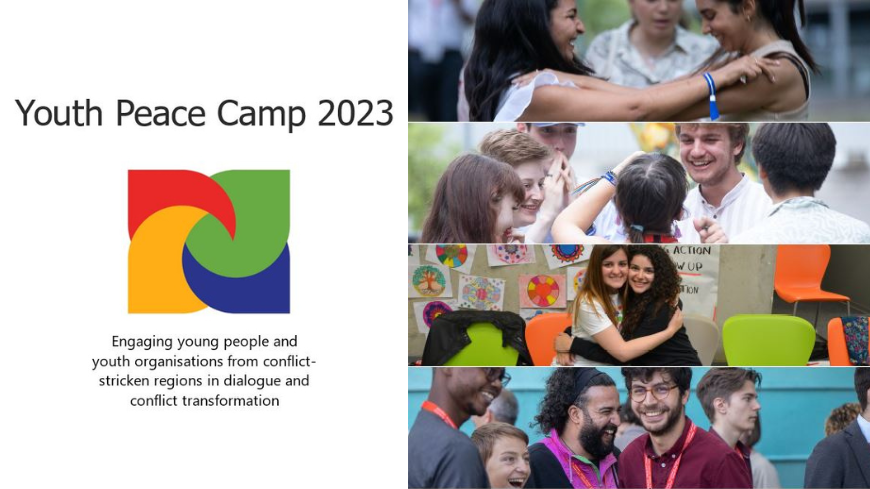
After having local camps, online editions in the shape of the “Youth Peace Week” and last year’s Peace Camp Conference, this year the YPC came back to the European Youth Centre in Strasbourg. From 4 to 11 July 2023 young people from Cyprus, the South Caucasus, both banks of the river Nistru/Dniestr and Kosovo* gathered in Strasbourg to work together in building relationships and dialogue and to bring home and to their communities another peaceful perspective of living together. In terms of this, we can say that the impact of the Youth Peace Camp on its participants is remarkable. Young people from conflict-affected regions not only gain self-esteem, self-confidence, assertiveness, self-awareness, critical thinking and stronger communication skills, but they also consider themselves more curious, open-minded, ready to learn about each other’s realities and more able to confront their emotions and address sensitive issues. The Youth Peace Camp inspires and motivates participants to act in their respective communities and become agents of change. In addition, it gives another peaceful perspective to youth workers and those who are becoming youth workers. This new perspective opens the sphere of peace education as a possibility for young people and youth workers to get engaged in and act as peace multipliers in their work and local realities, as well as to promote values of non-violence and democracy.
 Other peace education projects of the Council of Europe’s Youth Department
Other peace education projects of the Council of Europe’s Youth Department
Talking about the Council of Europe’s work on peace and human rights education is definitely not something new. In previous years, the Youth Department and European Youth Foundation funded different projects, implemented study sessions in co-operation with youth organisations and approved grants for various programmes related to these topics. If we seek successful stories, it is important to mention the Youth Peace Ambassadors, a project that was initiated by the Council of Europe in 2011. Today, the Youth Peace Ambassadors Network functions independently and gathers more than 120 people who are acting as peace educators and multipliers all around Europe and beyond.
Moreover, in October 2022, the Council of Europe’s Joint Council on Youth took the decision to launch a special call to support young people from Ukraine. The European Youth Foundation initiated this programme in response to the needs expressed by the Ukrainian authorities and youth organisations. The initiative aimed to support young people from Ukraine affected by the war through civil society and youth work interventions within the framework of the Council of Europe’s values. The activities included peer-to-peer learning and support, training and workshops, information and counselling, awareness raising, capacity building for young people, youth workers and youth leaders, meetings of young people from Ukraine, analysis, research and other actions based on the principles and practice of youth work.
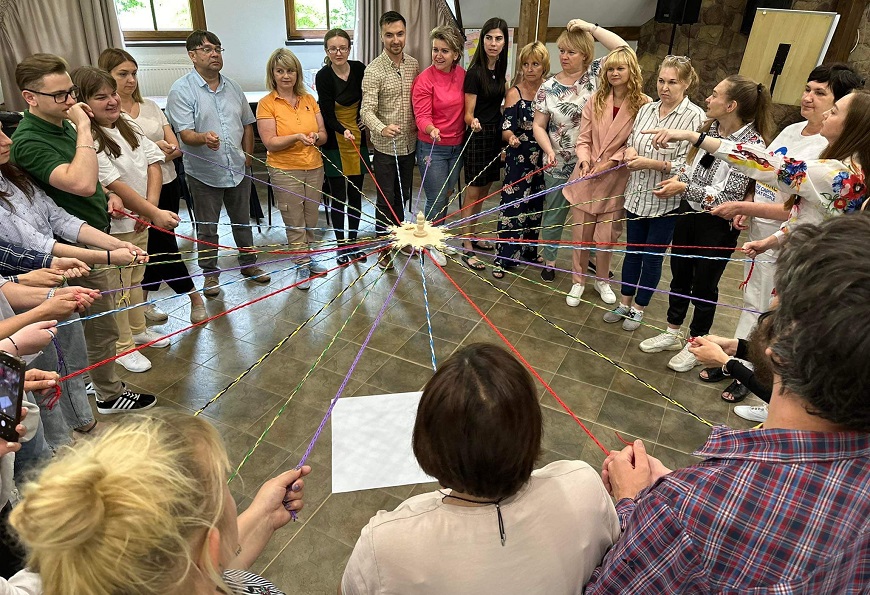
In the end, if we reflect on all the efforts of the Council of Europe to foster peace education, we can say that all these initiatives play a crucial role in peacebuilding on European soil at the moment. Instead of being focused on armament, it is essential to bring the focus back to peace education, as it equips individuals with the knowledge and skills necessary to navigate conflicts in a non-violent and constructive way. In today’s world, where tensions and divisions are often exacerbated by social, political and economic factors, peace education provides a framework for promoting social harmony, intercultural understanding and co-operation. It can help us to build empathy, recognise diverse perspectives and learn how to communicate effectively and respectfully with others. Ultimately, peace education can empower individuals to become agents of positive change in their communities and work towards creating a more peaceful and just society. It presents an alternative to violence and general worldwide arm production. Therefore, as concluded in the consultative meeting, common effort is needed to revitalise peace education in different intercultural activities and ensure more long-term funding opportunities for those working on peace education. There is a need to provide access to peace education for all young people by incorporating peace and human rights education in the school curriculum. In this way, we will not only assure familiarity with peace education, but also more peaceful relations and societies.
In light of the necessity to provide access to peace education, we can say there are various chances for all young people, youth workers and activists to collaborate and connect with the Council of Europe and become more engaged in peace and human rights education and promote values of peace, conflict transformation and non-violence. One way is to participate in the programmes supported by the European Youth Foundation, which provide opportunities for young people to engage in intercultural dialogue, democratic citizenship and human rights education. Another way to connect with the Council of Europe’s initiatives is to participate in the Youth Peace Camp. Even though it is focused on specific regions, in forms such as the Youth Peace Week and Peace Conference, it opens the door to young people from the whole of Europe and beyond. Furthermore, through the Youth Department’s study sessions, young people are getting a chance not only to be educated in different topics related to human rights and peace, but also to find spaces and networks that can offer them a place for further engagement and co-operation. Furthermore, youth workers, youth leaders and young people can also promote values of peace education and conflict transformation by organising their own local initiatives and activities. They can use the Council of Europe’s resources, such as the Compass or T-kit youth transforming conflicts, which provide guidance on how to involve young people in peaceful conflict transformation and use human rights education as a tool to transform conflicts.
Finally, by using those chances, engaging in peace and human rights education, spreading values of non-violence and peace, young people can be crucial change makers all around Europe. They can make a change from the top-down level, by taking part in the Council of Europe’s co-management structures such as the Advisory Council on Youth (CCJ) and bringing peace education to the agenda at a high political level. They can bring change at the bottom-up level too, by organising training courses, workshops and other educational activities that can support young people and their engagement in transforming conflicts and building peace. As the saying emphasises, the young people of today are the leaders of tomorrow. In terms of this, we hope that the future is nothing less but more peaceful if young people keep working together and sharing knowledge and resources, and therefore contribute to building more peaceful and inclusive societies.
Galtung, J. (1996). Peace by Peaceful Means: Peace and Conflict, Development and Civilization. International Peace Research Institute Oslo, Sage Publication.
Council of Europe, Compass – Manual for Human Rights Education with Young People (2nd edition updated in 2020).
Charter on Education for Democratic Citizenship and Human Rights Education, www.coe.int/en/web/edc/charter-on-education-for-democratic-citizenship-and-human-rights-education.
Stockholm International Peace Research Institute (2022), “World military expenditure passes $2 trillion for first time”, www.sipri.org/media/press-release/2022/world-military-expenditure-passes-2-trillion-first-time.
* All references to Kosovo, whether to the territory, institutions or population, in this text shall be understood in full compliance with the United Nations Security Council Resolution 1244 and without prejudice to the status of Kosovo.
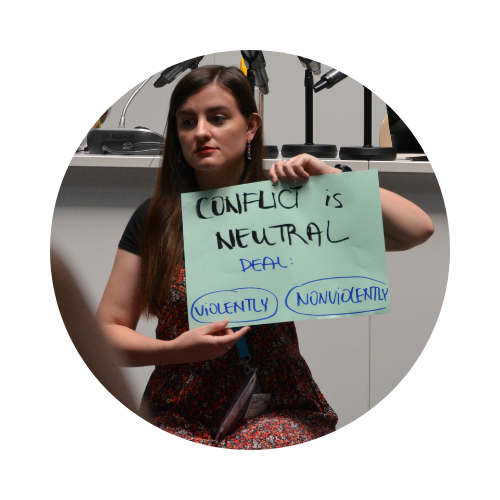
Nevena is a is a trainer and researcher in peacebuilding and conflict transformation.


